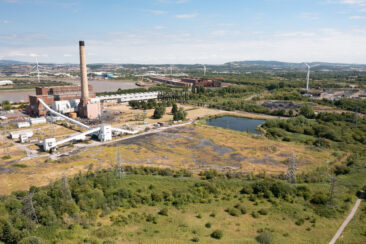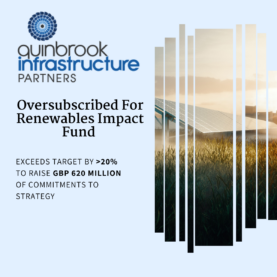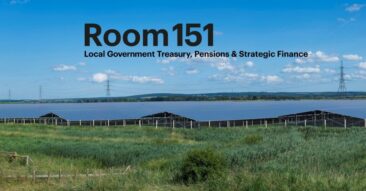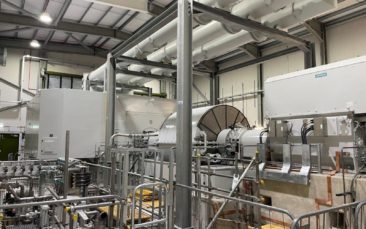Aligning portfolios with net-zero targets, whilst achieving social impact and a just transition

London, UK – April 27, 2023
Since 2019, when it was the first G7 nation to set a Net Zero by 2050 target (1), the UK has been accelerating its decarbonisation targets for the power sector, and has a target for 95% of electricity to be from low carbon sources by 2030 (2). Given decarbonisation of power’s cross-party support (3), a significant increase in renewables capacity over the next 7 years is expected, however, delivering a ‘just transition‘ is as important as achieving Net Zero.
The principle of a ‘just transition’ is the endeavour to widely share the social and economic benefits of creating a green economy, while also supporting those who stand to lose economically. In the UK, the demise of coal mining has provided important lessons for those grappling with the societal challenges of the energy transition (4). The industry experienced waves of mine closures beginning in the 1960s and saw a 90 percent decline in employment by 1997 (5). Consequently, communities in and around coalfields across the UK have seen a dramatic rise in poverty as the industry shrank, and yet the Government did not deploy specific transition policies to support these regions until 15 years after the first closures (6).
Green Jobs in the UK reached a record high in 2021 (247,400 FTE roles) a 19% YoY increase (7), but the Government is still not on track to deliver its flagship pledge of two million green jobs by 2030 (8). Historically, Quinbrook managed projects have sought to provide apprenticeships, training and upskilling to regional communities. Quinbrook has endeavoured to develop projects in communities with limited access to affordable energy through local economic disadvantages, or have previously been reliant on coal, to directly support both fair, safe work and deliver local economic benefits.
Investment in clean energy infrastructure can create significant opportunities for local workers, particularly in rural and regional areas where assets are typically sited. Coal mines, smelters or landfill sites are examples of potentially retiring infrastructure that can provide interconnection capacity for new renewable energy projects. In the UK, Quinbrook has targeted re-powering opportunities at older landfill gas and coal mine methane sites, such as Project Uskmouth (Figure 1 below).
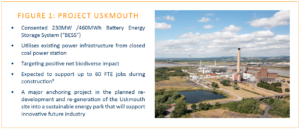
A robust and stable system supplied solely with carbon-free sources of power supply requires significant build-out of new renewables generating projects, deployment of technology enabling supply and demand flexibility as well as new grid support infrastructure. This ‘whole of system’ investment philosophy puts the emphasis on addressing critical infrastructure needs and enablers for a stable transition to a decarbonised power system.
National Grid’s Stability Pathfinder Programme commenced in 201910 and offers fully inflation-indexed revenue contracts supporting the construction of new infrastructure aimed at improving grid stability. Quinbrook’s four new build synchronous condensers secured over 50% of the value of Stability Pathfinder Phase II contracts awarded by National Grid (11).
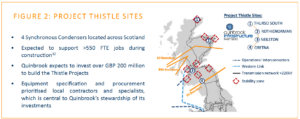
Quinbrook acknowledges that modern global supply chains, particularly in mining, metals, electronics and polysilicon, are highly complex, and have significant risk of potential human rights issues. To seek to drive change in the Supply Chain, Quinbrook has implemented an extensive human rights assessment and engagement process with the support of experts. As illustrated by its procurement process at Project Fortress, highlights of which are set out in Figure 3.
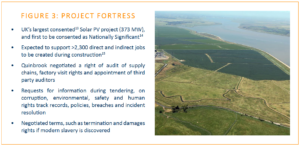
However, a ‘just transition’ faces the risk of ‘fair washing’. Infrastructure investors have the ability to create jobs through creation of decarbonising assets and deliver investment in areas and communities that are vulnerable to inequality during the energy transition. Environmental considerations, such as long-term access to water supply, water stress, waste impacts, arable land and food are also key human rights considerations that are intertwined with decarbonisation. Quinbrook believes considered siting of local investment opportunities offered by the UK energy transition has the potential to reconcile the need for attractive financial returns, decarbonisation, a ‘just transition’ and meaningful ESG impact.
Download the full article here: 20230330 Aligning Portfolios With Net-Zero Targets, Whilst Achieving Social Impact And A Just Transition (1)
References:
1 https://www.gov.uk/government/news/uk-becomes-first-major-economy-to-pass-net-zero-emissions-law
2 HM Government “British Energy Security Strategy” 7th April 2022
3 https://www.bbc.co.uk/news/uk-politics-64739371
4 International Institute for Sustainable Development “The End of Coal Minin in South Wales: Lessons Learned From Industrial Transformation”
5 International Institute for Sustainable Development “The End of Coal Minin in South Wales: Lessons Learned From Industrial Transformation”
6 Resources for the Future: “Case Study: United Kingdom’s Delayed Response to Transitioning Coal Communities Highlights Lessons for Policymakers”
7 https://www.ons.gov.uk/economy/environmentalaccounts/bulletins/finalestimates/2021
8 https://www.gov.uk/government/news/uk-government-launches-taskforce-to-supportdrive-
for-2-million-green-jobs-by-2030
9 Quinbrook internal forecast: 10,000 man hrs / 20 MW
10 https://www.nationalgrideso.com/future-energy/projects/pathfinders/stability/Phase-1
11 National Grid Eso, “Scotland’s wind success story bolstered by £323m stability investment” (6 April 2022)
12 support pro rated based on personnel on site at Rassau (2.8 personnel/VAR)
13 As at Mar 2023 based on Bloomberg NEF data
14 gateleyplc.com/insight/case-studies/advising-on-cleve-hill-the-first-solar-park-delivered-by-dco
15 solar pv total FTE 6/MW CEBR / Solar powered growth in the UK / prepared for solar trade association
Related News and Insights
See all

Quinbrook Announces Multiple MD Promotions

Imperial Climate Challenge in 4 Questions

Quinbrook Welcomes Bipartisan US Congressional Delegations to its Flexitricity Headquarters
Flexible Generation, Grid Support | Global * | United Kingdom | United States

Wood Mackenzie scales data analytics across the energy transition by adding Quinbrook
Industry | United Kingdom | Global *
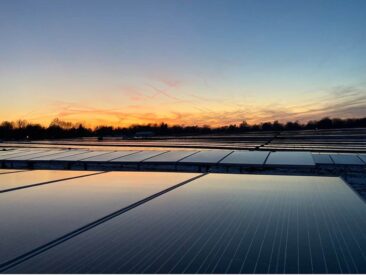
Quinbrook joins the Net Zero Asset Managers initiative
Net Zero | Global * | Australia | United Kingdom | United States














 Investor login
Investor login


